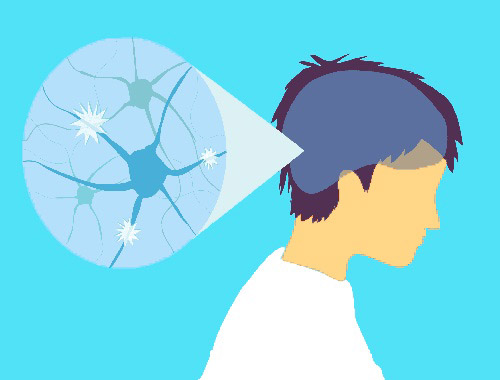Clinically Isolated Syndrome (CIS)

Published: 18 Jun 2025
ICD9: 341.9 ICD10: G37.9 ICD11: 8A41
Clinically Isolated Syndrome (CIS) is a term used to describe a single neurological episode that resembles multiple sclerosis (MS).
It involves symptoms caused by inflammation or demyelination (damage to the protective coating of nerves) in the brain, spinal cord, or optic nerves.
Here's a breakdown:
![]() Neurological episode: This means a single occurrence of neurological symptoms like numbness, weakness, vision problems, balance issues, or cognitive difficulties. The symptoms must last at least 24 hours.
Neurological episode: This means a single occurrence of neurological symptoms like numbness, weakness, vision problems, balance issues, or cognitive difficulties. The symptoms must last at least 24 hours.
![]() Resembles multiple sclerosis (MS): The symptoms experienced in CIS are the same as those experienced in MS. However, having a CIS does not automatically mean someone has MS.
Resembles multiple sclerosis (MS): The symptoms experienced in CIS are the same as those experienced in MS. However, having a CIS does not automatically mean someone has MS.
![]() Inflammation or demyelination: The episode is thought to be caused by inflammation or damage to the myelin sheath (the protective covering of nerve fibers) in the central nervous system (CNS). This damage disrupts the normal transmission of nerve impulses.
Inflammation or demyelination: The episode is thought to be caused by inflammation or damage to the myelin sheath (the protective covering of nerve fibers) in the central nervous system (CNS). This damage disrupts the normal transmission of nerve impulses.
Key Distinctions and Significance:
![]() Not a Diagnosis of MS: CIS is not a diagnosis of MS. It's a *precursor* that *might* develop into MS.
Not a Diagnosis of MS: CIS is not a diagnosis of MS. It's a *precursor* that *might* develop into MS.
![]() Predicting MS Development: MRI scans play a crucial role in determining the risk of CIS progressing to MS. If an MRI shows lesions (areas of damage) in the brain, the risk of developing MS is significantly higher.
Predicting MS Development: MRI scans play a crucial role in determining the risk of CIS progressing to MS. If an MRI shows lesions (areas of damage) in the brain, the risk of developing MS is significantly higher.
![]() Treatment: Treatment with disease-modifying therapies (DMTs) is often considered for individuals with CIS, especially those with MRI evidence of lesions. This aims to delay or prevent the development of MS.
Treatment: Treatment with disease-modifying therapies (DMTs) is often considered for individuals with CIS, especially those with MRI evidence of lesions. This aims to delay or prevent the development of MS.
In simple terms, think of CIS as a "first strike" by the immune system against the central nervous system. It's a warning sign that MS might develop in the future.
Important Considerations:
![]() Individuals experiencing CIS should consult with a neurologist to undergo a thorough evaluation, including a neurological exam and MRI scans.
Individuals experiencing CIS should consult with a neurologist to undergo a thorough evaluation, including a neurological exam and MRI scans.
![]() The decision to treat CIS with DMTs is a complex one that should be made in consultation with a neurologist, considering the individual's risk factors, MRI findings, and personal preferences.
The decision to treat CIS with DMTs is a complex one that should be made in consultation with a neurologist, considering the individual's risk factors, MRI findings, and personal preferences.
![]() Even if someone experiences CIS, they may never develop MS.
Even if someone experiences CIS, they may never develop MS.